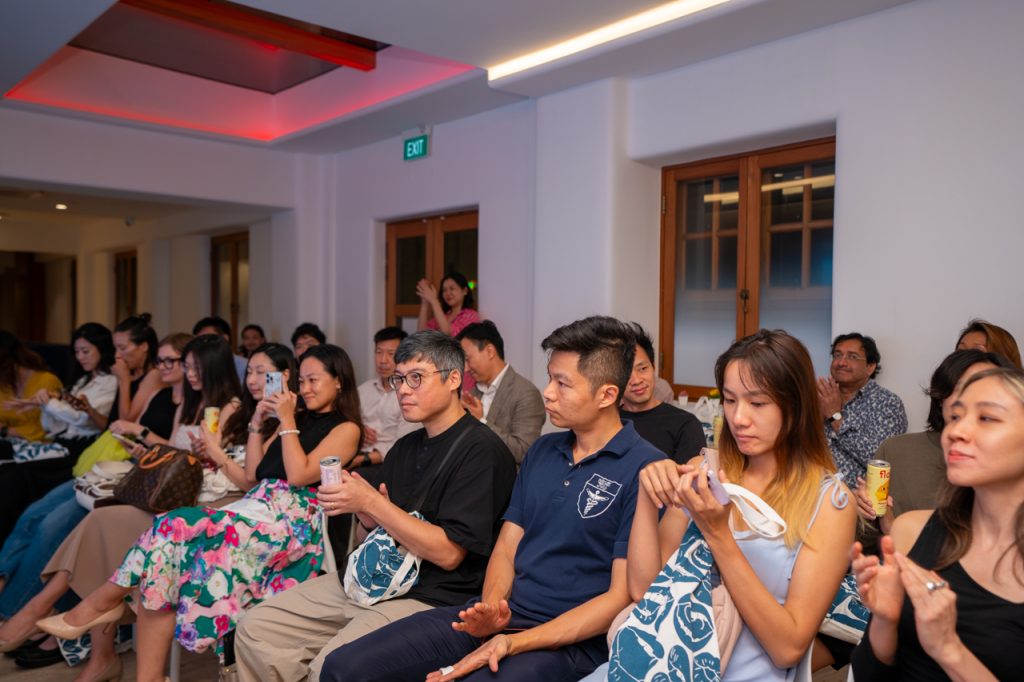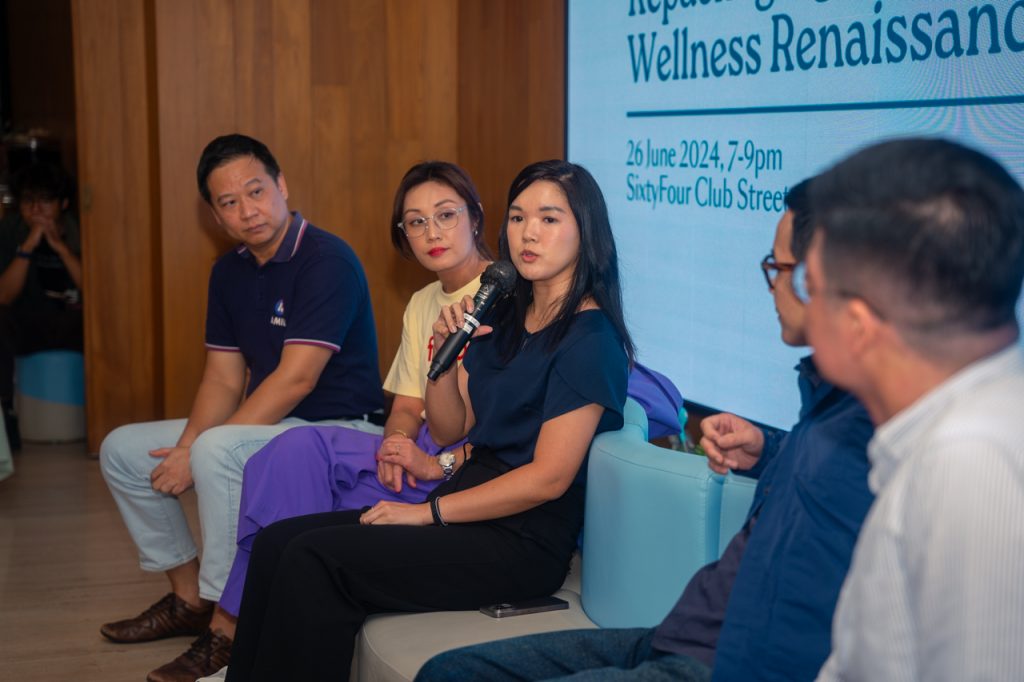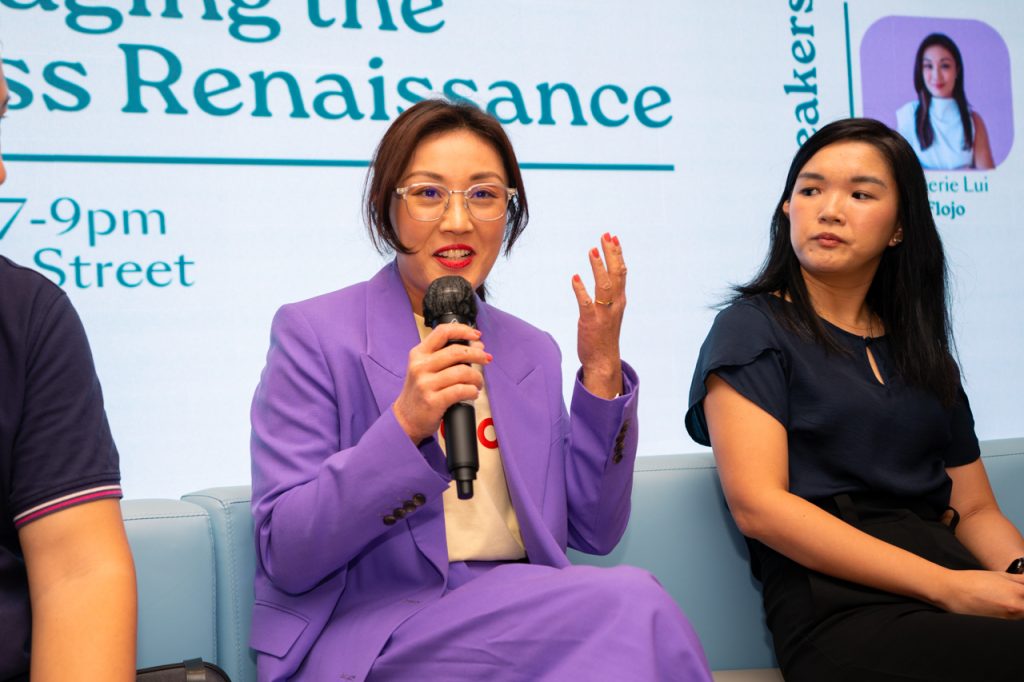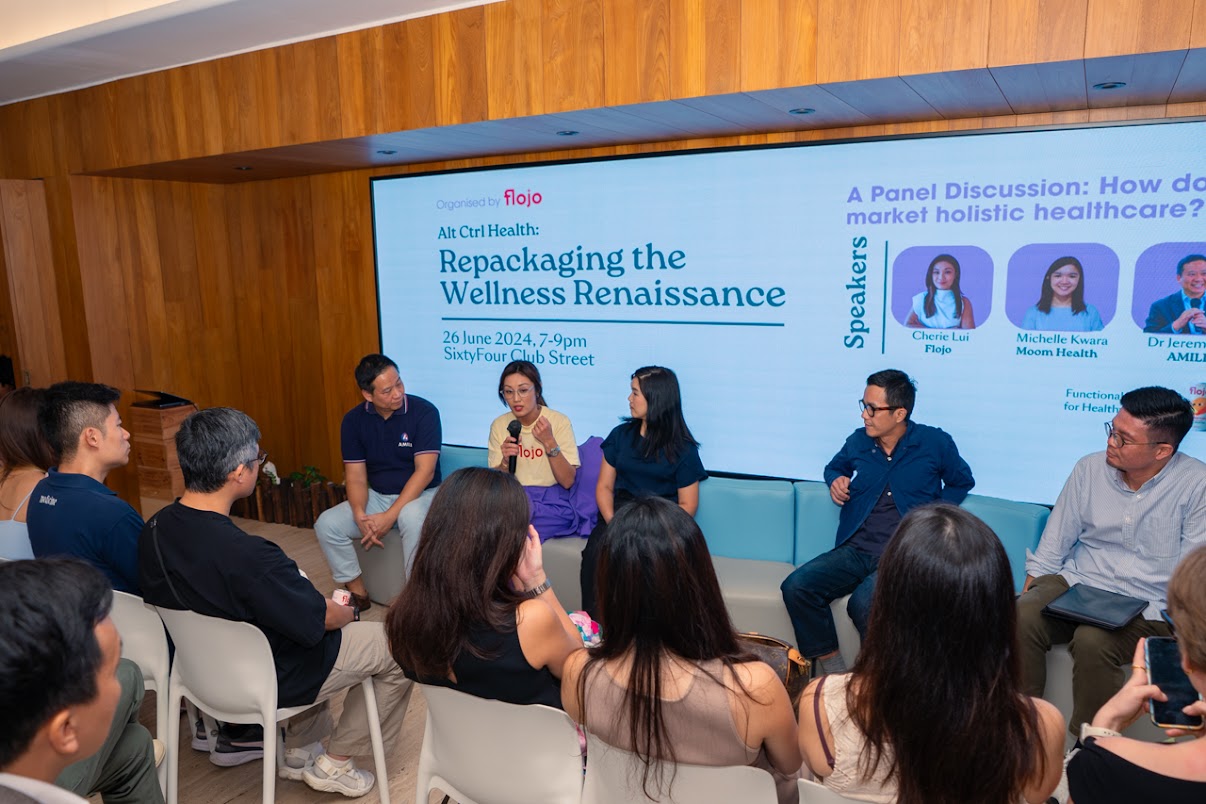All images by Xue Qi Ow Yeong for RICE Media
“These days, your BS antenna needs to be extra strong,” opines Dr Jeremy Lin. A medical practitioner who founded precision gut microbiome company Amili, Dr Lin is concerned about the cavalcade of health fads and newfangled products inundating consumers these days.
For a long time, lawmakers have striven—but are now struggling—to keep the health and wellness industry safe for consumers. However, a particular conviction has swept the globe: cutting-edge science can improve one’s health and well-being on demand.
ADVERTISEMENT
Egged on by the abundance of third-party manufacturing available to them, innumerable entrepreneurs seek to profit from this ensuing and insatiable demand.
They proffer many new, and sometimes even farfetched, wellness products and services to the market, promising that consumers can enjoy health benefits almost effortlessly.
You don’t have to look far to see devices that might make you chuckle. Silicone balls that you have to keep biting down on to sculpt a chiselled jawline. Electrodes that electrocute your abdominal muscles until they become tight abs.
Unsurprisingly, weight loss pills are still all the rage around the world! Although the popular ones today just irritate the bowel and make consumers defecate their food before most of the food’s calories can be absorbed.
At the end of the day, we’re all simply striving to look and feel our best. Reflecting this universal desire, Singaporean energy drink brand Flojo recently held a panel discussion named Alt Ctrl Health: Repackaging the Wellness Renaissance to discuss this rampant growth of the holistic health industry.
The event brought together entrepreneurs like Dr Lin; Cherie Lui, Co-Founder of Flojo; Michelle Kwara, Growth Marketing Lead for women’s healthcare supplement startup Moom Health; and Yong Ng, Founder of brand consultancy Somewhere Else. The panel was moderated by Mark Tan, RICE Media’s Founder.
Together, they elaborated on the steps they took to help their potential customers separate the wheat from the chaff.

A Cacophony of Voices
Dr Lin pointed out how millions of influencers are throwing their names behind new (and occasionally questionable) health fads.
“When Kylie Minogue announced that she had breast cancer, breast cancer screenings went up by over 30 per cent,” Dr Lin shared, expounding on the influencer trend.
“Kylie was more influential than all the doctors before her who were asking women to register for screenings.”
“The landscape is just going to get more and more crowded,” Yong added. “My issue is that many [Fast-Moving Consumer Goods] businesses expect their consumers to know better. Now, it’s up to the consumer to decide who is telling the truth. There are many conflicting claims out there, and even the truth can get cancelled out, depending on who has the loudest voice.”
Dr Lin likens today’s wellness industry to the “Wild West” due to the minimal regulatory oversight of its myriad offerings. Nonetheless, he praised this frontier for giving brands the freedom to imagine and create.
ADVERTISEMENT

Building Trust at a Grassroots Level
During the passionate discussion, Michelle highlighted that building trust with consumers is difficult but vital—these wellness products are mostly ingested, and consumers can potentially develop allergic symptoms like acne and hives.
“At the same time, customers are not helpless, because they can find out a product’s benefits and side effects from verified sources. Consumers are savvy and will call you out if you make wild claims.”
It’s why Moom Health places such a major priority on communicating with it customers and, in turn, keep them invested. She divulged that Moom Health recognised the immense value of interacting with consumers and building community, because Moom Health has even leveraged these relationships and feedback to reformulate and repackage better products.
The importance of repackaging the familiar isn’t lost on Flojo. Cherie added that she and her co-founders decided to incorporate herbs from traditional Chinese medicine because many Asian consumers are familiar with them and their benefits.
“The health benefits of these herbs are widely known and accepted, and now science is trying to catch up and validate these ingredients.”

Presenting Your Own Scientific Proof
In a landscape where regulation can’t keep up with unprecedented supplements, entrepreneurs are taking it upon themselves to conduct and present their own scientific evidence.
Michelle emphasised that today’s consumers are more informed than ever—they expect upfront quality assurance. She revealed that Moom Health has been investing in third-party testing and keeps its scientific testing up to date and up to current standards.
“When consumers are concerned about quality and want to know how our supplements are manufactured, we are happy to share our scientific literature with them.”
Similarly, entrepreneurs like Cherie have invested in engaging a panel of scientists to substantiate their supplements’ claims.
However, Dr Lin raised that margins in FMCG industries are “razor thin”, so wellness entrepreneurs have to make wise and prudent decisions when budgeting for scientific research and analysis.
He also explained that food consists of multiple ingredients that can interact in complex ways—so it’s actually easier to test and regulate pharmaceuticals than foods.
The discussion about regulation inevitably segued to the topic of vaping: whether regulating vapes and their ingredients would make for a safer scenario than the currently thriving black market in Singapore.
Mark highlighted that regulation is an effective way of building trust, saying, “I think we need clear and effective regulations to build trust, and this goes hand in hand with brand innovation. Innovation comes first, but regulation will need to catch up.”
He mentioned that with vapes and e-cigarettes, for example, the lack of effective policymaking has led to a thriving black market.
Mark puts forth taking notes from the mistakes and best practices of the UK and New Zealand, who’ve have been gradually and cautiously legalising vapes and e-cigarettes.
“Consumers are making the switch despite vapes being illegal, and this switch is motivated by their concern for their own wellbeing,” Mark raised.
“However, in the case of vapes where there is absolutely no regulation, consumers don’t know which products to trust, so they are still left vulnerable.”
Trust came up again and again during the discussion on the boom in holistic health products. It became clear to everyone that wellness entrepreneurs now need to budget for and conduct scientific research to back up their product claims.
In this wild west of wellness, the gold rush is outpacing government regulation, leaving savvy consumers asking for solid evidence and overly trusting ones at risk. The question is this: when will regulations finally catch up to reality?





